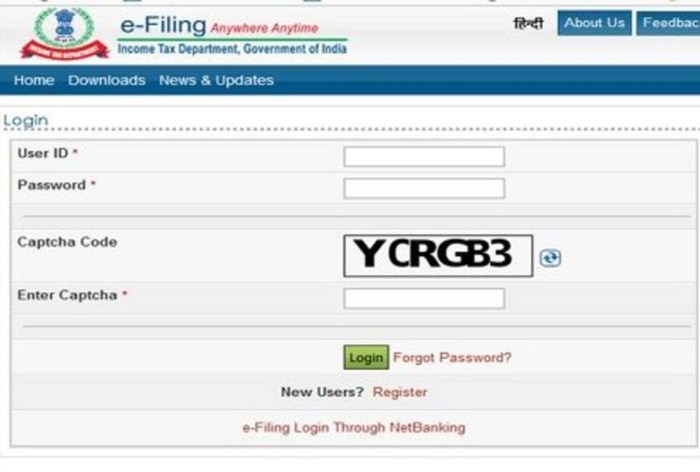Home BusinessITR Filing 2023: What Is Nil Return And What Are The Benefits of Filing It
ITR Filing 2023: Use of a NIL Return informs the income tax office that you have no taxable income for that fiscal year. If your income is less than Rs 2.5 lakhs, you are exempt from paying income tax.
New Delhi: Many people mistakenly think that they don’t need to file an income tax return (ITR) if their income is below Rs 5 lakh, as they believe they don’t have to pay any tax. However, this is not entirely true. Under Section 87A of the Income Tax Act, taxpayers can claim a rebate of Rs 12,500 if their total income is below Rs 5 lakh. This means that even if their income is below the exemption limit of Rs 2.5 lakh, they don’t have to pay tax because of the rebate.
What is a NIL Return?
A NIL Return is an income tax return filed when your income is less than Rs 2.5 lakh and you have no tax liability. It informs the income tax office that you have no taxable income for that fiscal year. While not mandatory, there are several benefits to filing a NIL Return, according to Canara HSBC.
When should you file a NIL Return?
You may need to provide your income tax return as proof of income when applying for a visa or a loan. Even if your income is below the taxable limit, having a record can be useful in such cases.
Benefits of filing a NIL Return:
1. Proof of income: A NIL Return can be used as proof of income when applying for a visa or a loan.
2. Proof of address: NIL returns are accepted as valid proof of address for passport applications.
3. Claiming TDS refund: If your employer has deducted TDS from your salary, you can claim a refund by filing a NIL Return.
4. Establishing tax residency: Filing a NIL Return helps establish your tax residency status, which can be beneficial for claiming tax benefits or applying for a visa.
5. Carrying forward losses: By filing a NIL Return, you can carry forward losses incurred in the stock market.
Last Date of Filing ITR:
The deadline for filing a nil income tax return is July 31 of the Assessment Year. If your income is below the taxable limit for the financial year 2022-23, you must file your nil return by July 31, 2023. Late filing of a nil return incurs no late filing fees.
Don’t Miss Out on the Latest Updates. Subscribe to Our Newsletter Today!

